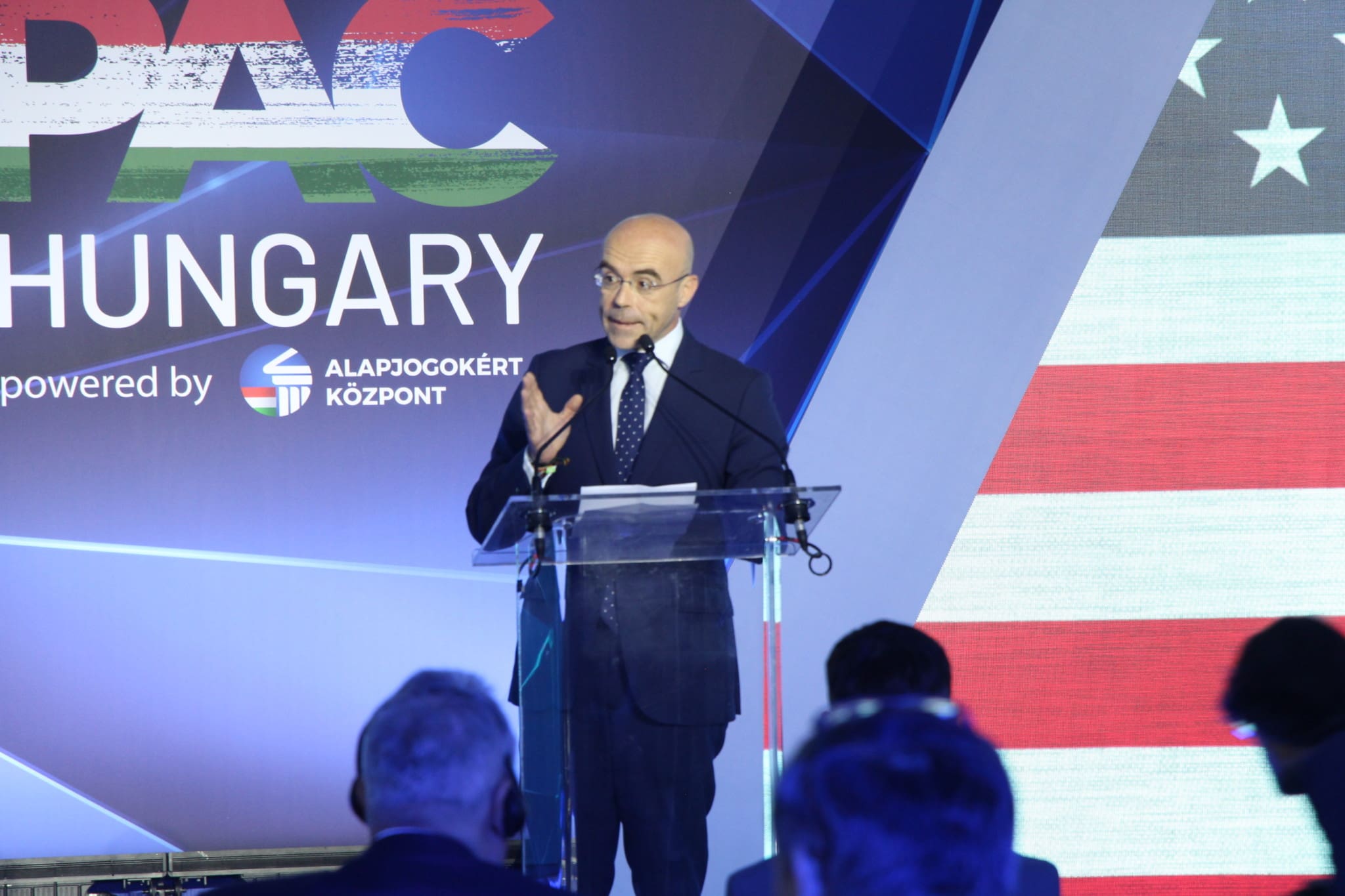Many Europeans wonder why Spain has become so left-wing. It’s probably the most left-wing country on the whole continent now, isn’t it?
Well, yes, the explanation is perhaps very complex, but fundamentally it is because, during the years in which there have been governments of the Popular Party, the center-right has not been able to give a cultural-political response to all the challenges posed by the left. Therefore, when the left has governed, it has advanced its political agenda, and when the center-right has governed, it has been incapable of opposing this agenda and it even implemented left-wing policies. Forty years of this have brought about social change. However, Vox is proof that there is a response in Spanish society and that we can reverse the situation.
So, if the Popular Party has conducted leftist policies for years, why can’t Vox replace it? Despite Vox’s progression, the PP still gets the most votes on the right. Don’t Spaniards see that it is now more of a left-wing party than a right-wing one?
Indeed, there is a part of Spanish society that has not yet realized that the Popular Party is nothing more than the Socialist Party a few years behind. We, Vox, continue to grow and in the next municipal and regional elections at the end of May 2023, Vox will be the party that will grow the most in Spain. Of course, we know that this is not going to be easy, but we are determined to change all the public policies of the left on energy, food sovereignty, security, immigration and taxes.
[pp id=76199]
The problem is that in Spain there is no real freedom in the media. The media are either public or, when they are private, they survive thanks to subsidies from public administrations. Therefore, there is no real free competition; there are practically no conservative media in Spain, and this places Vox in a situation of competitive inferiority.
So, it’s the same as in countries like France and Germany, yes?
I think so. I don’t fully know the situation in those countries, but I think so.
Vox talks a lot about this problem, but not only. It also sounds the alarm against general rule-of-law issues in Spain. Can you tell us what are the main problems with the rule of law under the coalition government of the left and the far left led by Pedro Sánchez?
The fundamental problem is that since the beginning of the legislature, Sánchez has launched an assault on the institutions — the Supreme Court, the Constitutional Court, the National Intelligence Center — taking hold of all the institutions, unfortunately doing so on many occasions with the collaboration of the Popular Party. Starting from there, there are other very important issues, including inequality among Spaniards. In Spain, the system of autonomous communities, or regions, has developed so much that it now stands in the way of equality among Spaniards. For example, hundreds of thousands of Spanish people living on Spanish territory cannot freely use their language and study in Spanish because Sánchez’s minority government has to find agreements with all the separatist and globalist forces that exist in Spain.
Regarding separatists, it seems that for the May 28 elections, some of their political parties have on their lists people who were convicted in the past for terrorism, including for blood crimes…
Yes, and it’s a very serious matter. A few days ago we learned that 44 people convicted of terrorism are on the electoral lists of the Bildu party, which is a separatist party in the Basque Country and the Sanchez government’s main support. The drift of the government in Spain towards chaos and autocracy, following the model of the narco-dictatorships in Latin America — Venezuela, Cuba and Nicaragua — is evident. And therefore, it is urgent that Vox enters as many institutions as possible to stop this process of destruction of the social order.
Being an MEP who sees all this also from Strasbourg and Brussels, how do you explain the fact that the EU institutions do not react as they do with Poland or Hungary, which do not have such serious problems with the rule of law or with political violence like the physical aggression by the extreme left in Spain?
It is very simple: The Brussels machinery is ideologized with a strong left-wing and federalist bias. And as Sánchez, when he goes to Brussels, always agrees with them on everything, and Sánchez is the main executor of the whole globalist and federalist agenda in Spain, Brussels considers him an ally. For that reason, what is not allowed for Poland or Hungary is allowed for Sánchez.
[pp id=75485]
Furthermore, Poland and Hungary are often attacked without reason whereas Sánchez is allowed to pursue a process of destruction of the democratic institutions and of the independence of the institutions that guarantee citizens’ rights such as the Supreme Court and the Constitutional Court.
In the context of the CPAC conference that took place in Budapest on May 4 and 5, where you made a speech and had discussions, do you think there are reasons to be optimistic about the possibility to reverse this evolution to the left, not only in Spain, which is at the forefront of the progressive revolution in Europe but throughout Europe?
Yes. I believe that the enemy is very powerful, but CPAC showed that there is a growing conservative force of reaction to the processes of destruction of Europe. We have seen this in the last elections in Hungary, Italy, Sweden and Finland, and we expect this to continue later this year with the elections in Poland and Spain. There is a reaction of European nations against the woke agenda, the 2030 agenda, the globalist agenda, and the projects of federalization of the European Union that are pushed forward by the Brussels bureaucracies. CPAC was yet another moment to demonstrate the strength of conservative and patriotic movements in Europe, as was, for example, the Madrid summit chaired by Santiago Abascal just over a year ago.





